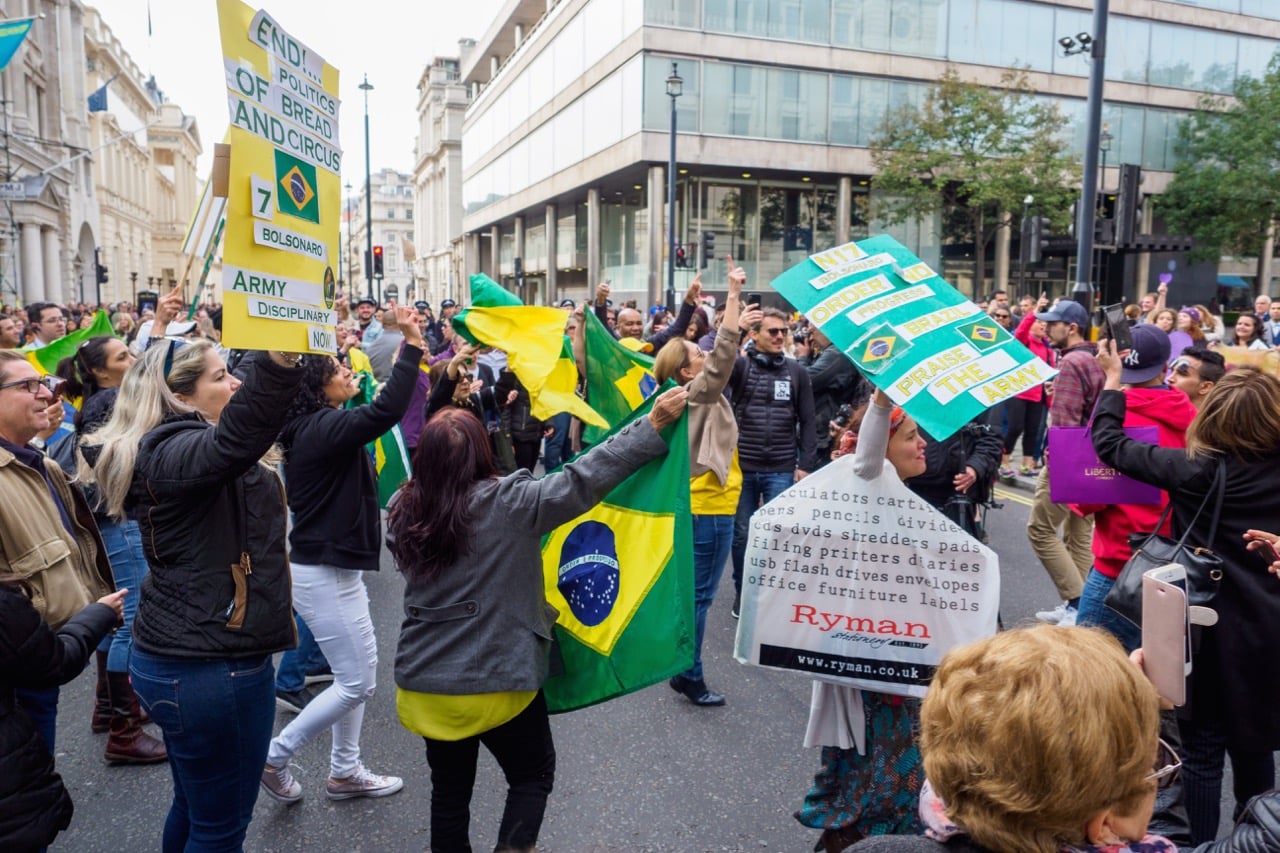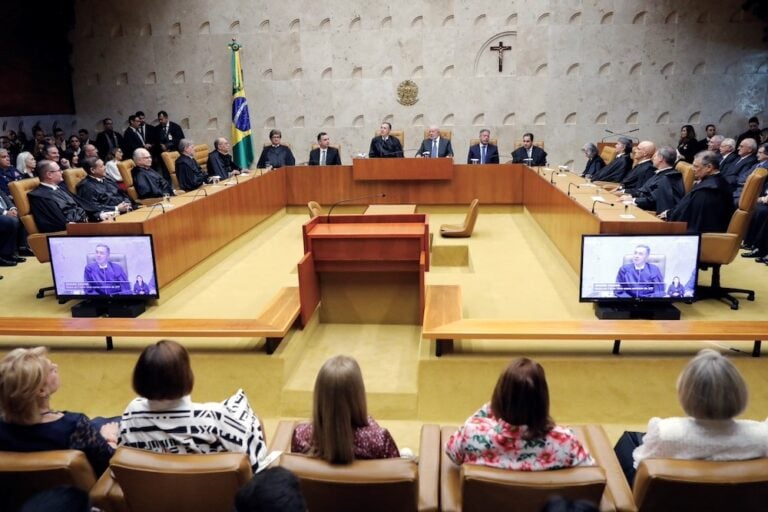Most of the cases of physical attacks on journalists are related to the coverage of rallies or events related to elections.
This statement was published on abraji.org.br on 15 October 2018.
The number of cases of aggression against communication professionals in a political, partisan and electoral context has already reached 137 in 2018, according to the Associação Brasileira Jornalismo Investigativo (Abraji) survey. There were 75 digital media attacks (affecting 64 professionals) and another 62 physical attacks (affecting 60 individuals).
Most of the physical incidents are related to the coverage of rallies or other significant events of great repercussion related to elections. A bus carrying 28 journalists covering former president Luiz Inácio Lula da Silva’s caravan in southern Brazil was struck by gunshots coming from opponents. During the coverage of the imprisonment of the former workers’ party ex-president, 19 other professionals were harassed or beaten.
The most recent case is that of a journalist from Pernambuco, beaten and threatened with rape by supporters of presidential candidate Jair Bolsonaro on 7 October 2018, after leaving her polling station.
Among the digital media cases, the majority (91%) were a result of undue exposure of communicators, when the perpetrators share photos and/or profiles of the person in question indicating that the professional follows a certain ideology and thus encouraging mass offenses. Such aggressions occur especially on Facebook and on Twitter.
Citizens and politicians, such as economist Rodrigo Constantino, humorist Danilo Gentili, journalist (and now federal representative PSL-SP) Joice Hasselmann, federal representative Eduardo Bolsonaro (PSL-SP) and prosecutors Marcelo Rocha Monteiro (MP-RJ) and Ailton Benedito (MPF-GO) are among the perpetrators of the violations.
Profiles on social networks linked to conservative and far-reaching themes such as Movimento Brasil Livre (MBL) are also on the list of digital media cases. In May, the group produced a “dossier” accusing journalists of partisan bias and acting as “censors.” The survey was made after the disclosure of a partnership of fact checking agencies with Facebook. In the document, circulated via WhatsApp and Facebook, there are photos of journalists classified as “left” and “far left”, removed from social networks, and the reproduction of posts that would “prove” the political inclination of these professionals.
As expressed in notes on the cases mentioned, Abraji stands in solidarity with the reporters and repudiates the aggressions. Offenses, harassment and threats to journalists aimed at silencing them are symptoms of contempt for democracy. The right to information, essential for society as a whole, is compromised when media professionals are prevented from plying their trade freely.



